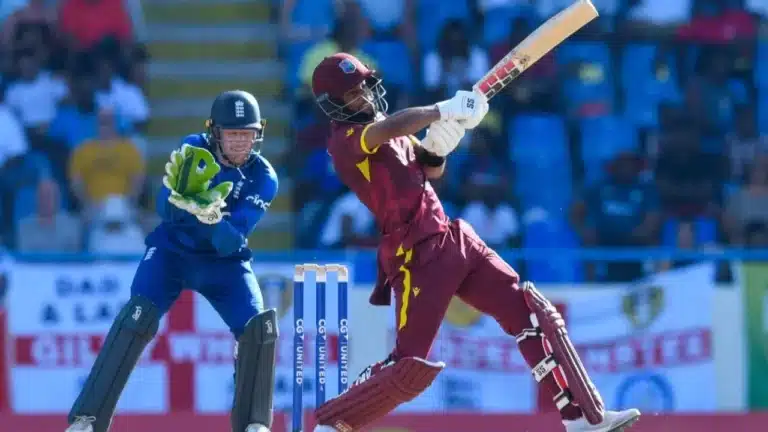
The International Cricket Council (ICC) has officially confirmed that the stopwatch test will begin in the upcoming T20I series between the England National Cricket Team and the West Indies National Cricket Team.
The five-match T20I series between the West Indies and England is scheduled for December 13, 14, 16, 20 and 22. The first match of the series will be held at Bridgetown and the next two matches will be hosted at St George’s. The last two games will be played in Tarouba.
England will hope to bounce back strongly in the T20I series after losing the three-match ODI series 1-2. The Men In Maroon, who failed to qualify for the ICC Cricket World Cup 2023, won the first and third ODIs by 4 wickets to seal the series victory and deal another blow to England, who performed poorly in the Cricket World Cup. Recently completed World.
Stopwatch will come into effect in WI vs ENG T20I – ICC
The ICC has introduced a stopwatch to speed up the game by penalizing cases of time wasting by one side of the field. It was introduced on a trial basis for the starting men’s ODIs and T20Is between December 2023 and April 2024.
The newly updated playing conditions will apply to 59 international matches during this period. Furthermore, the stopwatch rule will be seen for the first time in the first T20I between the West Indies and England on December 12, 2023.
“As per clause 41.9 of the revised playing conditions of men’s ODI and T20I, which deals with provisions against time wasting by the fielding side, the clock has been added in sub-clause 41.9.4,” ICC stated.
According to these newly updated playing conditions, a fielding team must start a new over within 60 seconds of the completion of the previous over. An electronic clock will be displayed on the ground and will count down from 60 to 0 once the over ends.
If the fielding team does not follow the rule, the umpires will give two warnings, before imposing a five-run penalty on the team. The ICC has also revealed the exceptions to the aforementioned playing conditions.
According to the subclause, there are exceptions to the above, and the clock, if already started, may be canceled in the following circumstances:
A new batsman comes to the wicket between overs. An official drinks interval has been called. Umpires have approved on-field treatment of an injury to a batter or fielder. Lost time is due to any circumstance beyond the control of the fielding side.